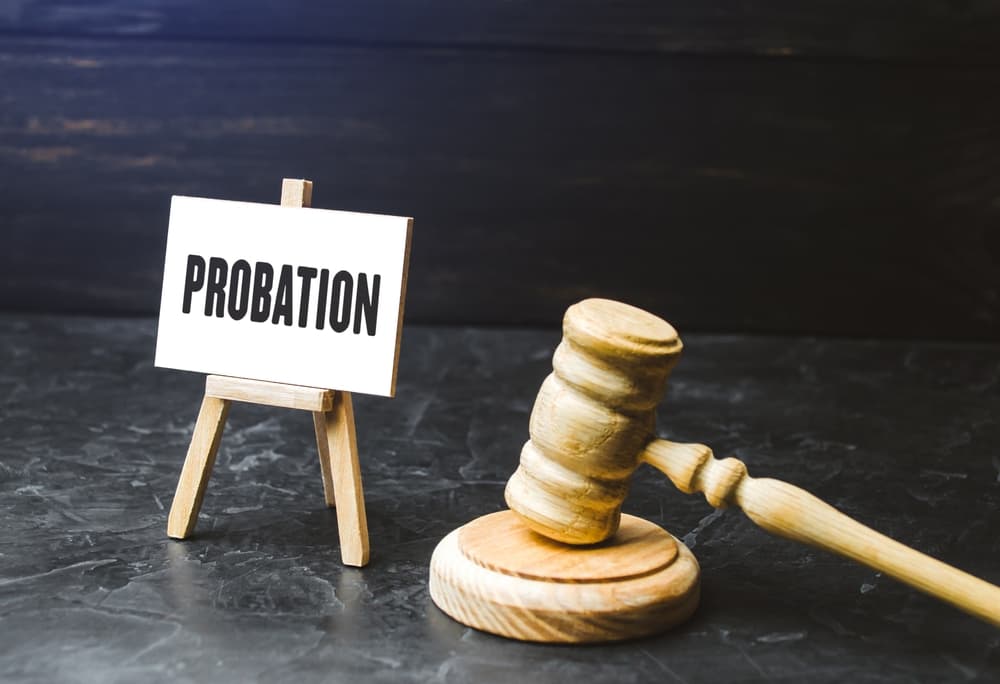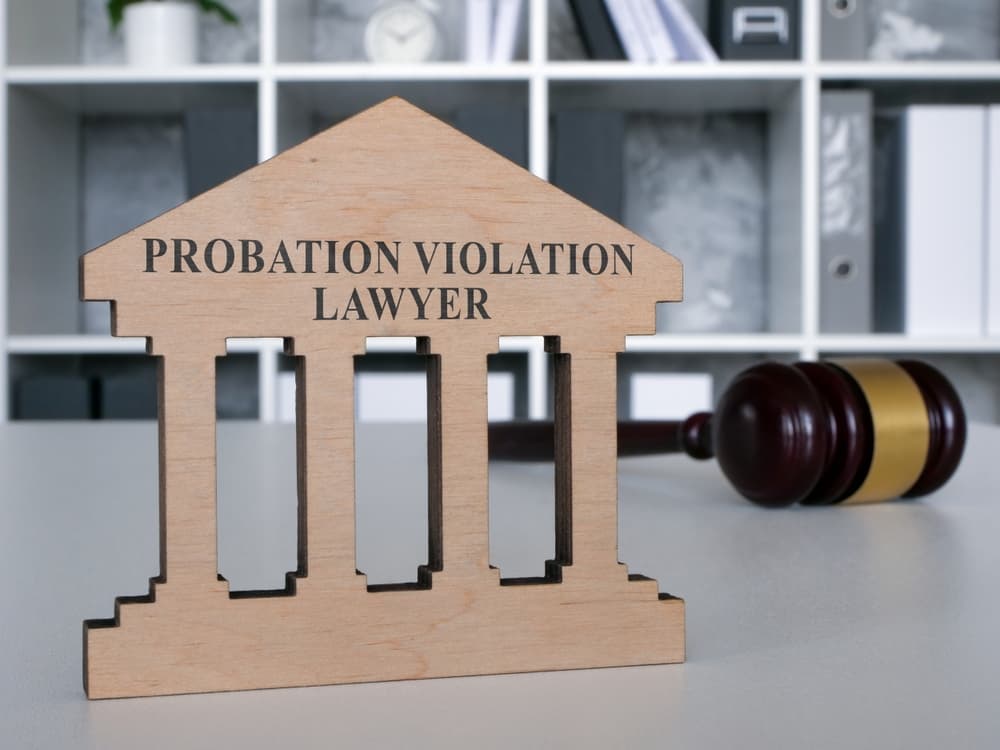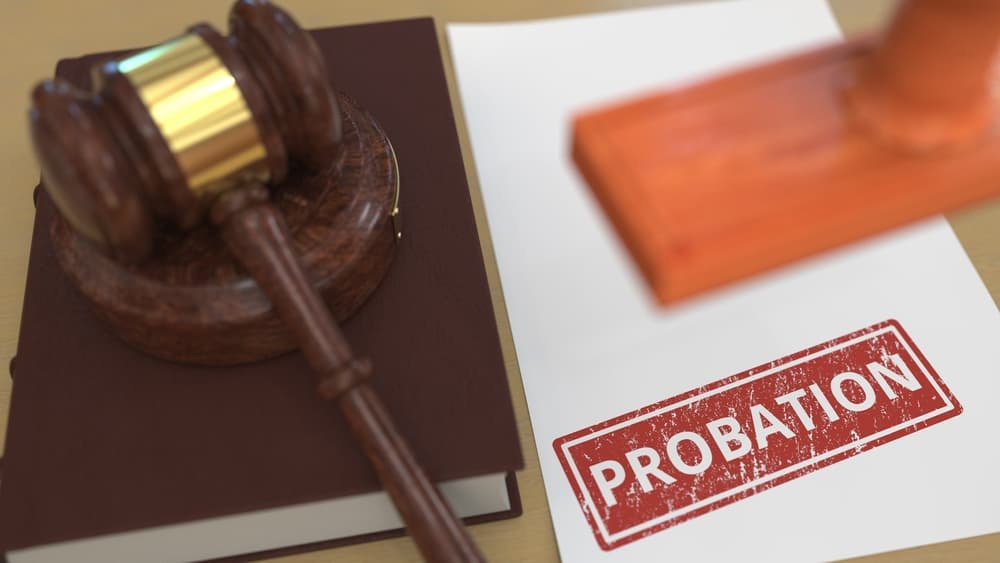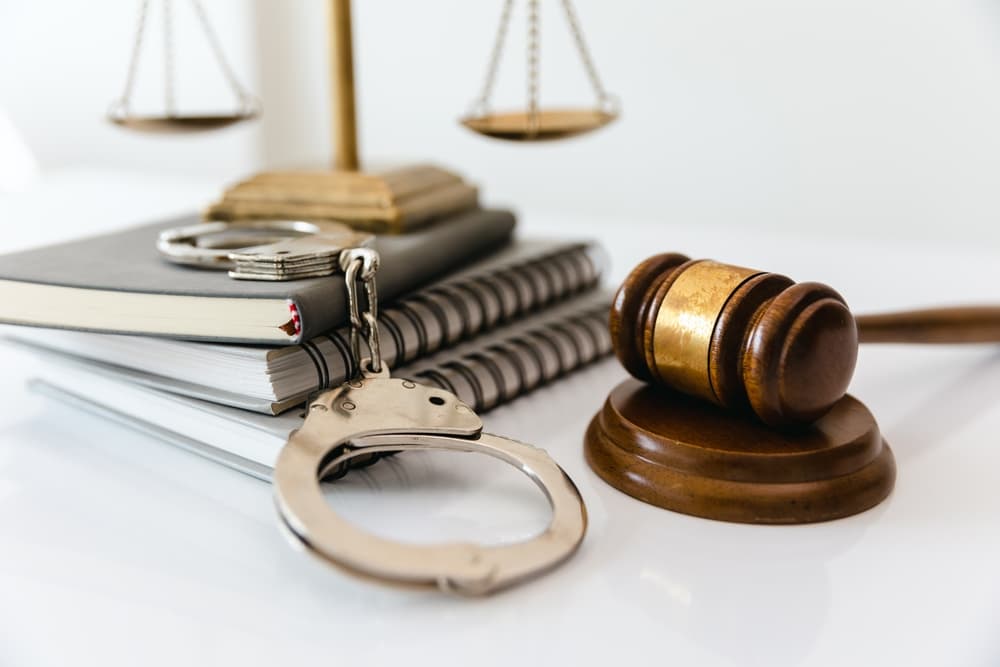After a probation violation in California, the court will review the evidence and determine whether the violation occurred. If proven, consequences can include extending probation, adding stricter conditions, or revoking probation, leading to jail or prison time.
If you are currently accused of violating your probation, you need a skilled California criminal defense lawyer immediately. They will assess the violation details, challenge weak evidence, and present mitigating factors to reduce penalties. If the violation is serious, your attorney may negotiate for alternatives to incarceration, such as rehab programs or an extended probation period.
Throughout the process, your lawyer will guide you, protect your rights, and work to minimize the effects of the alleged violation on your future.
What Is Probation in California?

In California, criminal probation is a form of supervised release given to convicted individuals instead of serving time in jail or prison. Probation allows offenders to remain in the community while following strict rules the court has set. These rules may include regular check-ins with a probation officer, attending counseling or rehabilitation programs, paying fines or restitution to victims, and avoiding further criminal activity. The court can grant probation for both felony and misdemeanor offenses, though the conditions and duration will vary based on the crime committed.
When Can Probation Be Granted?
Probation is not automatically granted to every person convicted of a crime. The decision to grant probation depends on several factors, including the nature of the offense, the offender’s criminal history, and the potential for rehabilitation. In California, probation may be possible in various situations.
First, probation can be granted for first-time offenders. Individuals convicted of a first offense, especially for non-violent crimes, are more likely to receive probation. The court may believe that the offender can avoid future criminal behavior with appropriate supervision and treatment.
Second, probation is more common for non-violent offenses, such as theft, drug possession, or driving under the influence (DUI). In these cases, probation can be a way to allow offenders to turn their lives around without incarcerating them.
Furthermore, probation may sometimes be part of a plea deal. For example, the defense attorney and the prosecutor may agree to recommend probation as an alternative to jail or prison, which the judge may then approve.
A judge may also consider mitigating factors such as the offender’s age, employment status, family situation, and community ties. If the individual has shown remorse and is committed to rehabilitation, the judge may be more inclined to grant probation.
The decision to grant probation is at the discretion of the judge, who must determine whether probation will serve the goals of punishment, deterrence, and rehabilitation while also protecting public safety.
Types of California Probation Violations

In California, when a person is on probation, they must follow specific rules the court has established. If an individual fails to comply with these conditions, they may be considered to have violated their probation. A probation violation can lead to serious consequences, including the possibility of jail or prison time. For example, one of the most common probation violations is failing to check in regularly with a probation officer. Probationers must often meet with their probation officer on a schedule, usually monthly or more frequently. Missing these appointments or failing to notify the officer of a change in address or employment can be a violation as it suggests the probationer may be evading supervision.
Failure to complete court-ordered programs is another common type of probation violation. Probation often includes attending counseling, rehabilitation, or educational programs, such as anger management or substance abuse treatment. Failing to complete these programs by skipping sessions or not making adequate progress is another common violation. Courts impose these programs to help rehabilitate offenders and prevent future criminal behavior.
Furthermore, committing new crimes is a probation violation in California. A probationer may not commit any new crimes while on probation. If they are arrested or convicted of a new offense, it is a probation violation. The seriousness of the new crime will often influence the court’s decision about whether to revoke probation or impose additional penalties.
Drug and alcohol violations are also probation violations. Probation conditions frequently include restrictions on drug and alcohol use, especially for individuals with a history of substance abuse. Violating this condition can include failing a drug test, being caught with illegal substances, or being arrested for driving under the influence (DUI). These violations can lead to revocation of probation because they suggest that the offender has not been rehabilitated.
Probation may require offenders to pay fines, court costs, or restitution to victims. Failure to make these payments without a valid reason or a plan to pay is another common probation violation. The court may impose stricter conditions or revoke probation if the payments are not made.
Probationers may also be prohibited from associating with individuals who have criminal backgrounds. Associating with known criminals or engaging in illegal activities can be grounds for a probation violation as it suggests the probationer is not taking their rehabilitation seriously.
What Can Happen If You Violate Your Probation in California?
In California, violating probation can lead to serious consequences. Probation is an alternative to incarceration, allowing individuals to stay in the community while adhering to strict rules the court has set. If a probationer breaks these rules, the court may take several actions, depending on the severity of the violation and the individual’s criminal history.
One of the most significant consequences of violating probation is the possibility of having probation revoked. If probation is revoked, the offender may be required to serve the remainder of their sentence in jail or prison. This consequence is especially likely for serious violations, such as committing new crimes or repeatedly breaking probation conditions. In some cases, instead of revoking probation, the court may impose stricter conditions on the offender. These conditions can include longer reporting periods, mandatory attendance at additional rehabilitation programs, or more frequent drug tests. These new conditions aim to help the offender correct their behavior while still allowing them to stay in the community under supervision.
A probation violation may also result in an extension of the probation period. The court may add more time to the probation sentence, forcing the offender to continue adhering to the terms of probation for a longer period. Adding more time to probation can happen if the court feels the probationer has not fully complied or has failed to show enough effort toward rehabilitation.
Furthermore, the court may impose additional fines for certain probation violations, especially those involving financial conditions (like failing to pay fines or restitution). These fines can burden the probationer financially and be a significant deterrent against future violations.
Another possible repercussion of a probation violation is increased scrutiny and monitoring. When a probationer violates their terms, the court may decide to increase supervision, which can involve more frequent meetings with a probation officer, random drug testing, or installing electronic monitoring devices such as ankle bracelets. Increased monitoring aims to ensure compliance and prevent further violations.
Finally, in some cases, a probation violation can lead to an arrest warrant for the probationer. If the probation officer reports a violation, the court may decide to issue a warrant for the individual’s arrest, which can lead to their detention until the court makes a further decision about the violation.
What Happens at a Probation Violation Hearing in California?

In California, if you are accused of violating the terms of your probation, a probation violation hearing will be scheduled. This hearing is a legal process where the court determines whether you have violated the conditions of your probation and what consequences, if any, should follow. The hearing is important in upholding your rights to due process, allowing the court to fairly evaluate your case.
Before the hearing, you will receive formal notification that a violation has been alleged. This notification usually happens through a probation violation report from your probation officer, which lists the specific terms of probation you are accused of violating. The report may detail actions such as missing appointments, failing drug tests, or committing new crimes.
Next, a hearing will be conducted. At the hearing, the judge will listen to both sides. The prosecution, often represented by the district attorney, will present evidence that you violated probation, including testimony from your probation officer, drug test results, or police reports. Your defense lawyer will then have an opportunity to challenge the evidence and argue that you did not violate probation or that the violation was not serious enough to warrant severe punishment.
In a probation violation hearing, the standard of proof is lower than in a criminal trial. Instead of proving guilt “beyond a reasonable doubt,” the prosecution needs to show only that the violation occurred by a “preponderance of the evidence” (meaning it is more likely than not that the violation took place). As a result, a probation violation hearing is generally less formal than a criminal trial.
After hearing all the evidence, the judge will decide whether you violated your probation. If the judge finds that you did violate the terms, they may impose various consequences, including extending your probation, adding stricter conditions, or even revoking your probation and sending you to jail or prison. In some cases, the judge may give you another chance and allow you to remain on probation with a warning. During the hearing, your defense attorney may argue mitigating factors. For example, they may show that the violation was accidental or that you are trying to comply. A judge may consider these factors before deciding on the consequences.
A probation violation hearing is critical in determining your future while on probation. Presenting a strong defense and showing the court that you are committed to following the rules is essential.
How Can a Defense Lawyer Help If You Are Charged with Violating Your Probation?

If you are currently charged with violating your probation in California, having a skilled criminal defense attorney by your side can make a significant difference in the outcome of your case. A violation can lead to serious consequences, including jail or prison time, but an experienced lawyer can work to protect your rights and minimize the penalties you face.
First, a skilled defense lawyer will carefully review the details of the alleged probation violation. They will examine the evidence, such as reports from your probation officer, arrest records, or drug test results, to see if the violation is valid or if there are weaknesses in the prosecution’s case. If the violation is based on a misunderstanding or the evidence is unclear, your attorney can challenge the claims in court.
Next, if the violation is legitimate, a defense lawyer may negotiate with the judge or prosecutor for a more favorable outcome. Instead of facing harsh penalties such as probation revocation or prison time, your attorney may arrange for alternative consequences, including extending your probation, adding more conditions, or requiring you to attend additional rehabilitation programs. Sometimes, they may negotiate for a reduced sentence or fewer restrictions.
If you violated probation, your criminal defense lawyer can also present mitigating factors that may lessen the severity of the punishment. For example, if you have a history of compliance or are facing personal difficulties, such as family problems or substance abuse issues, your lawyer can bring this to the court’s attention. They may argue that with proper support or treatment, you can successfully continue on probation without being sent to jail or prison.
Furthermore, a knowledgeable defense attorney can argue for a second chance if the violation was minor or unintentional. They may propose a probation modification plan, showing the judge that you are committed to complying with the terms moving forward. The goal is to avoid revocation and the accompanying prison sentence by proving that you can successfully continue on probation with additional support or oversight.
In addition, if you are facing a probation violation hearing, your attorney will guide you through the process, ensuring you understand the charges and your rights. They will prepare a defense strategy, gather evidence, and represent you in court to improve your chances of a favorable outcome.
Speak to an Experienced Criminal Defense Lawyer in California Right Away
If you are currently facing a probation violation charge in California, you need a trusted criminal defense attorney to advocate for you. Your lawyer can challenge the alleged probation violation and represent you during all legal proceedings. They will fight hard for your interests and pursue the best possible result in your case. Speak with a skilled Chudnovsky Law probation violation attorney in California about your options right away.